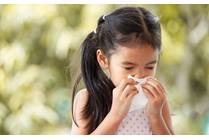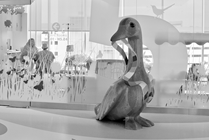Search Results
Viewing: 71-80 of 351 | All
Article
Buccal Medicines: Giving Buccal Medicines
A buccal medicine is a medicine given between the gums and the inner lining of the mouth cheek.
Article
Cardiopulmonary Resuscitation (CPR): Infants
This Helping Hand™ is a guide to general CPR for infants. It is not intended to be used as training material or in place of formal CPR training.
Anorectal Malformation (ARM) or Imperforate Anus: Male
In this Helping Hand™ document, we discuss the symptoms and treatment of anorectal malformations (imperforate anus) in males. Different types of ARMs include perineal fistula, rectourethral fistula, cloaca and no fistula. Young boys may be at risk for urology, spine and sacrum problems.
Kawasaki Disease
Kawasaki Disease is the most common cause of acquired heart disease in the United States and Japan. The disease can cause blood vessels to become inflamed or swollen throughout the body. It is more common in boys and in Asians and Asian-Americans.
Omphalocele
In normal development before birth, the intestines are formed in a sac around the umbilical cord, and then move into the baby's body. If the intestines stay in the sac (and do not move into the baby’s body) it is called an omphalocele.

Condition
Polycystic Kidney Disease
Learn about the two different types of Polycystic Kidney Disease.

Your Summer Safety Guide
Whether you are at home, on the road or in the water, you'll find the information you need for a fun and safe summer. Nationwide Children's is always just a click or call away.

Condition
Enuresis (Bedwetting)
Enuresis is the medical term for wetting the bed. It means a child urinates without meaning to. Treatment usually means helping a child to form habits that will allow him to control his need to urinate.

Your Guide to Respiratory Season
It’s that time of year for tissues, sniffles and sore throats. Winter brings colds, flu and respiratory ailments that spread quickly at home, school and work. Find the information you need about seasonal bugs right here at your fingertips.
